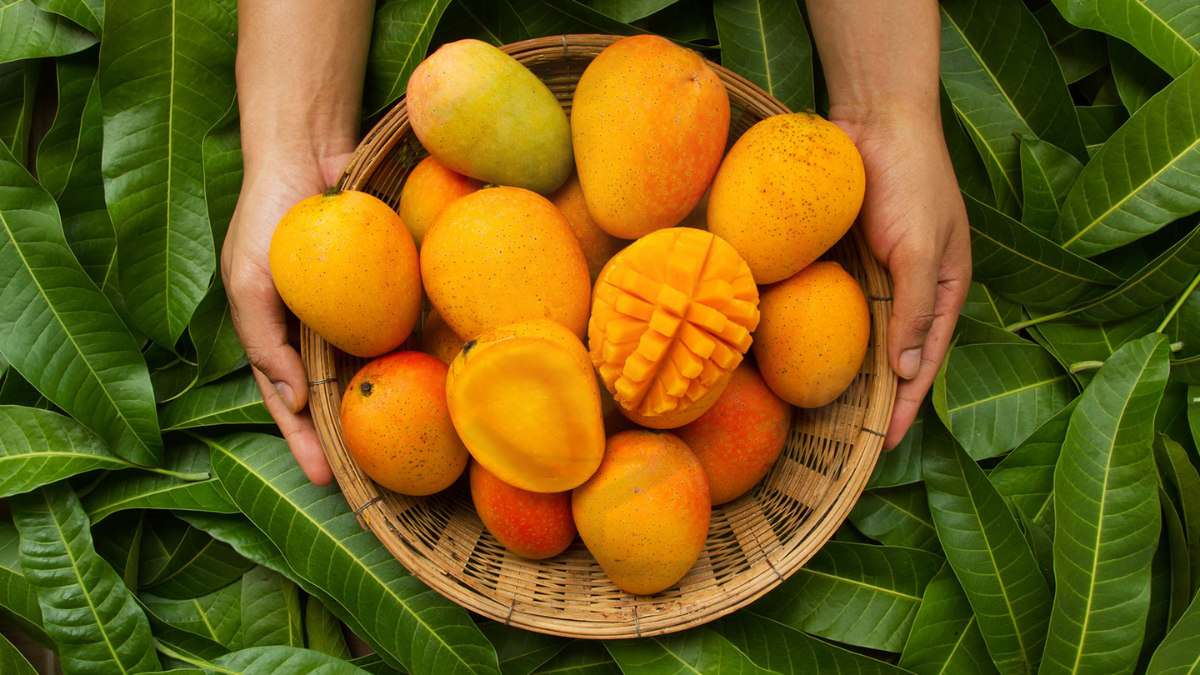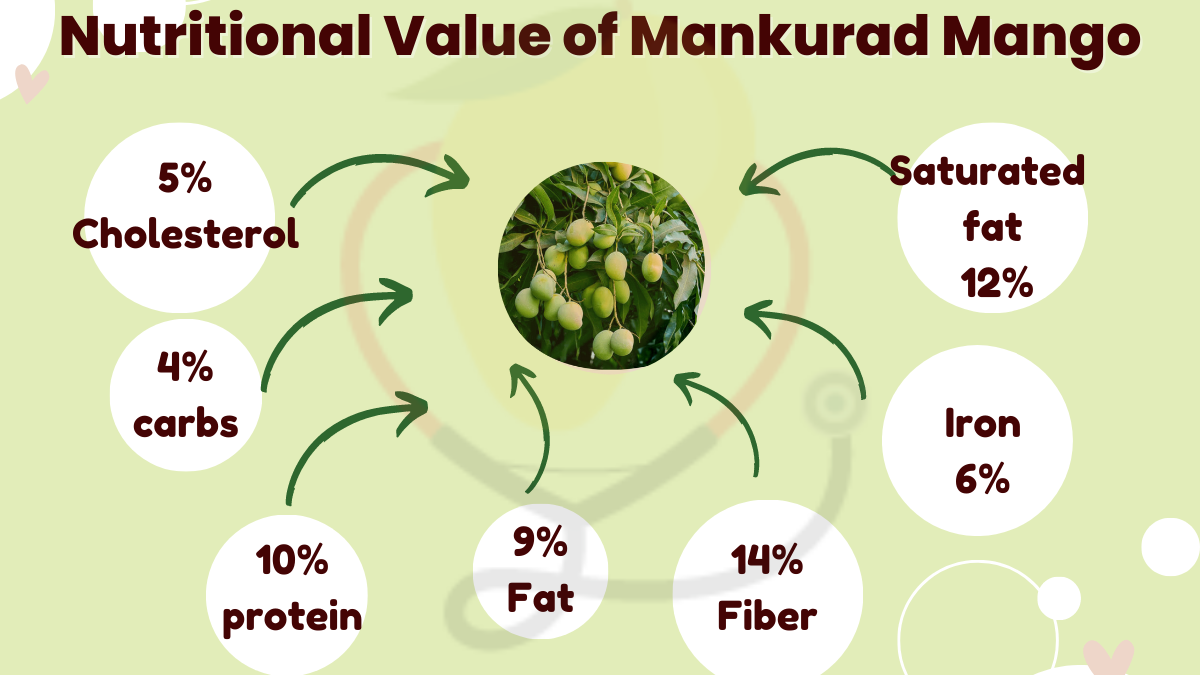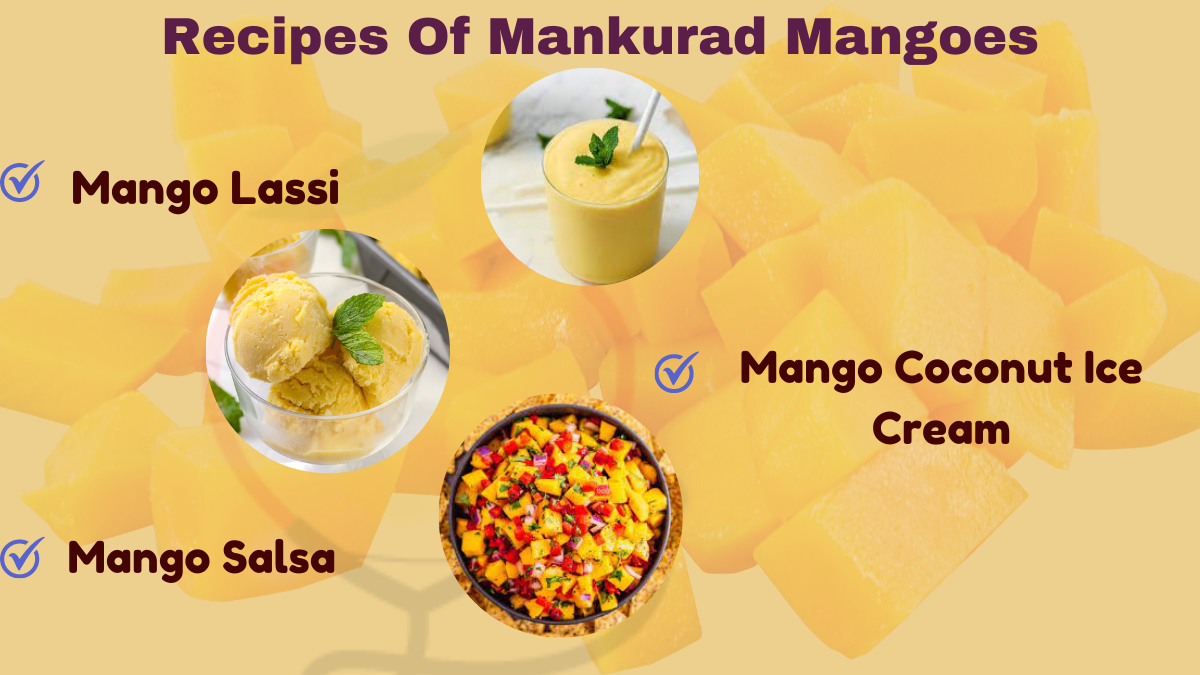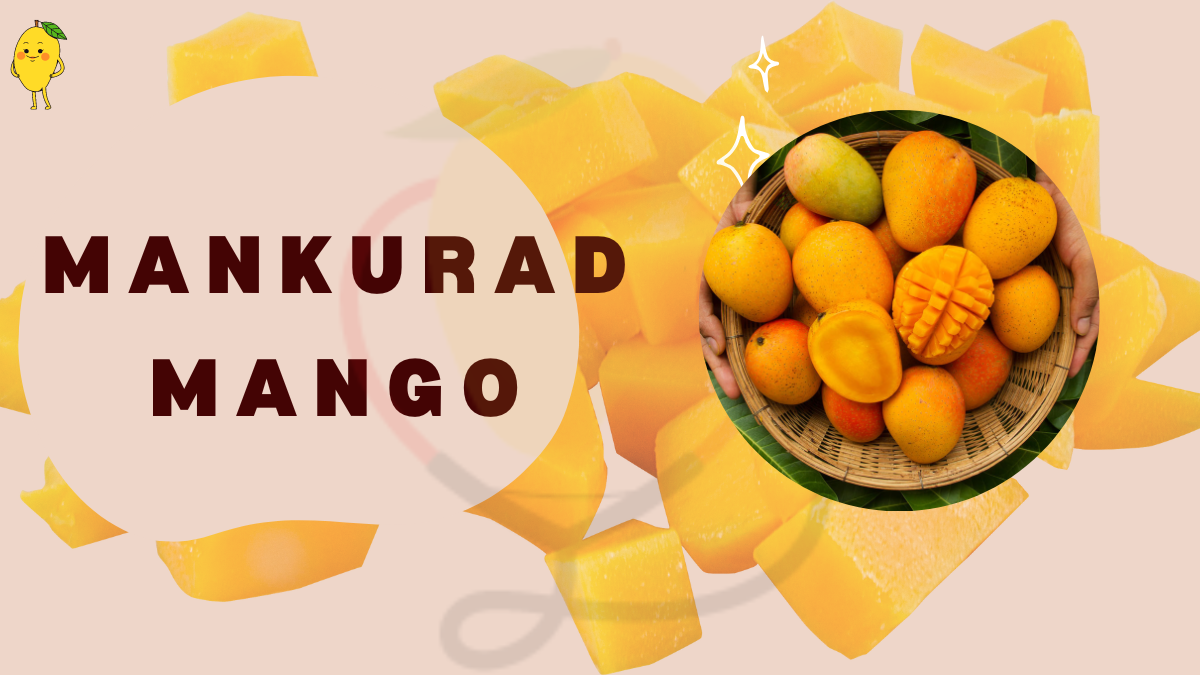Mankurad mangoes weighs approximately 200-250 grams and is known for its exceptional taste. [1]
It possesses a small and flat seed, resulting in higher pulp content.
This particular mango variety is renowned for its juiciness and abundance of pulp, surpassing other types of Alphonso mangoes.
In this article, we will explore the history, characteristics, and health benefits of Mankurad mangoes.

History and Cultivation of Mankurad Mangoes
Mankurad mangoes are native to the Konkan region of Maharashtra, India.
The mangoes are named after the village of Mankurad, where they were first discovered.
The trees that bear these mangoes are said to be over 100 years old, and the fruit is still grown using traditional methods.
Mankurad mangoes are grown in the fertile soil of the Konkan region, which is rich in nutrients and minerals.
The trees are typically grown without the use of pesticides or other chemicals, making them a popular choice among health-conscious consumers.
Characteristics of Mankurad Mangoes
Mankurad mangoes have several unique characteristics that set them apart from other types of mangoes. Here are some of their distinguishing features.
1: Size
Mankurad mangoes are relatively small in size compared to other mango varieties.
They typically weigh between 150-200 grams and are about the size of a tennis ball.
2: Shape
Mankurad mangoes are oval-shaped with a slightly flattened appearance. They have a small pointed tip at the bottom of the fruit.
3: Color
Mankurad mangoes have a bright yellow skin with a slightly reddish tinge on the top. The skin is smooth and free of blemishes or bruises.
4: Texture
Mankurad mangoes have a firm, juicy flesh that is slightly fibrous.
They have a sweet and tangy flavor that is less fibrous than other mango varieties.
5: Ripening
Mankurad mangoes are usually harvested when they are still slightly green and allowed to ripen off the tree.
They ripen quickly and are ready to eat within a few days of being picked.
6: Season
Mankurad mangoes are a summer fruit that is typically available between May and July.
They are grown primarily in the western region of India, particularly in the state of Maharashtra.
7: Aroma
Mankurad mangoes have a sweet and fruity aroma that is reminiscent of tropical fruits. The aroma intensifies as the fruit ripens.
Nutritional Values of Mankurad Mangoes
The percent DV indicates how much of a particular nutrient is in one serving of food, based on a 2,000 calorie diet. [2]

Here are some common nutrients and their corresponding percent DV:
- Fat: 9%
- Saturated fat: 12%
- Trans fat: 0%
- Cholesterol: 5%
- Sodium: 7%
- Total carbohydrate: 4%
- Dietary fiber: 14%
- Total sugars: 0%
- Protein: 10%
- Vitamin D: 0%
- Calcium: 20%
- Iron: 6%
- Potassium: 4%
Health Benefits of Mankurad Mangoes
Mankurad mangoes are not only delicious but also offer several health benefits. Here are some of the health benefits of consuming Mankurad mangoes.

1: Rich in nutrients
Mankurad mangoes are a good source of several essential nutrients such as vitamin C, vitamin A, folate, potassium, and copper. [3]
2: Promotes digestion
Mankurad mangoes contain enzymes that aid digestion and help prevent constipation.
They are also rich in dietary fiber, which helps regulate bowel movements and promotes a healthy gut. [4]
3: Boosts immunity
Mankurad mangoes are an excellent source of vitamin C, [5] which helps boost the immune system and protects against infections and diseases.
4: Improves vision
Mankurad mangoes are rich in vitamin A, which is essential for maintaining healthy vision. [6]
Vitamin A also helps prevent age-related macular degeneration and cataracts.
5: Lowers cholesterol levels
Mankurad mangoes contain soluble fiber, [7] which helps lower cholesterol levels and reduces the risk of heart disease.
6: Anti-inflammatory properties
Mankurad mangoes contain antioxidants that help reduce inflammation [8] and prevent chronic diseases such as cancer, diabetes, and heart disease.
7: Regulates blood sugar levels
Mankurad mangoes have a low glycemic index, which means they do not cause a rapid increase in blood sugar levels. [9]
This makes them an ideal fruit for people with diabetes.
Culinary uses of Mankurad mangoes
Mankurad mangoes are a versatile fruit that can be used in a variety of culinary dishes.
Here are some culinary uses of Mankurad mangoes.
1: Smoothies and juices
Mankurad mangoes make a delicious base for smoothies and juices.
2: Salads
Mankurad mangoes can be added to salads to provide a sweet and tangy flavor.
3: Salsas
Mankurad mangoes are a key ingredient in many salsas.
They can be combined with diced tomatoes, onions, and jalapenos to create a spicy and flavorful topping for tacos, burritos, or chips.
4: Chutneys
Mankurad mangoes are often used in Indian cuisine to make chutneys.
They can be combined with spices, such as cumin and coriander, to create a sweet and savory sauce that pairs well with meat or rice dishes.
5: Desserts
Mankurad mangoes make a delicious ingredient in desserts. They can be used to make mango sorbet, mango ice cream, or mango pudding.
They can also be sliced and served with whipped cream or used as a topping for cakes or pies.
Delicious Recipes
Mankurad mangoes are a delicious and versatile fruit that can be used in a variety of recipes.
Here are three recipes that highlight the flavor and texture of Mankurad mangoes.

- Mango Lassi
- Mango Salsa
- Mango Coconut Ice Cream
Mankurad mangoes are a true gem of the Konkan region of India. With their exceptional sweetness and unique flavor, they are a must-try for any mango lover.
The fruit’s short shelf life only adds to its appeal, making it a delicacy that is highly prized by those lucky enough to try it.

